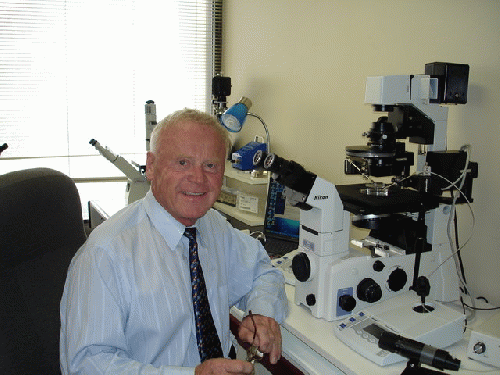How do you define true "health" or "least rate of aging"? Can a person who is not sick be defined as a healthy person?
What if that person has a - - yet undiagnosed - - disease? What if a person has risk factors for a (or several) diseases in his/her blood?
During the Korean war doctors, doing autopsies of young men who had died in battle, found that in excess of 50% already had atherosclerosis. In other studies, doing routine blood analysis, doctors observed that many disease risk factors were present in people who considered themselves healthy. Obviously these people could not be defined as truly healthy!
In people who have diabetes in their family, a constant deterioration of blood sugar balance shows that it isn't either one (diabetic) or the other (non-diabetic), but that diabetes develops from a person being 10%, then 20% - - etc., etc. - - to fully (100%) diabetic.
According to professor Emanuel Cheraskin, Alabama University School of Medicine, health is an equilibrium, a state of homeostasis, achieved by practicing about 50 variables (that can also be grouped together as "health practices') correctly. "Health' (optimum health) is therefore also defined as "optimum immune functions' or "least rate of aging.' Interestingly enough, telomere science confirms professor Cheraskin's definition of health.
Telomeres are elongations (consisting of repeating sub-units) at the end of DNA (chromosomes) in our cells; they are the longest at birth and shorten with every cell division. In humans we have about 54 sub-units, corresponding to a maximum life span of about 110 to 120 years. Measuring telomere length at any point in your life shows how much life span is left. And here comes the icing on the cake: Faulty health practices shorten, and good health practices lengthen telomeres.
Interestingly enough, testing the possibility of pharmaceutical drugs as contributing modalities to health and anti-aging shows an inverse relationship: the more drugs (# of drugs and length of time) you take (instead of improving health practices), the more your health DECREASES.
This, and much more, was discussed on a radio interview I had with the host of "Second Opinion," Dr. Ronald Klatz, MD, DO, president of A4M. The entire interview, plus many other anti-aging expert's views are now accessible in Pod Cast format.
Maybe even more important, the coming A4M (anti-aging medicine) meeting, held in Las Vegas, Dec. 9 -" 11, allows lay-persons to attend the medical congress.






